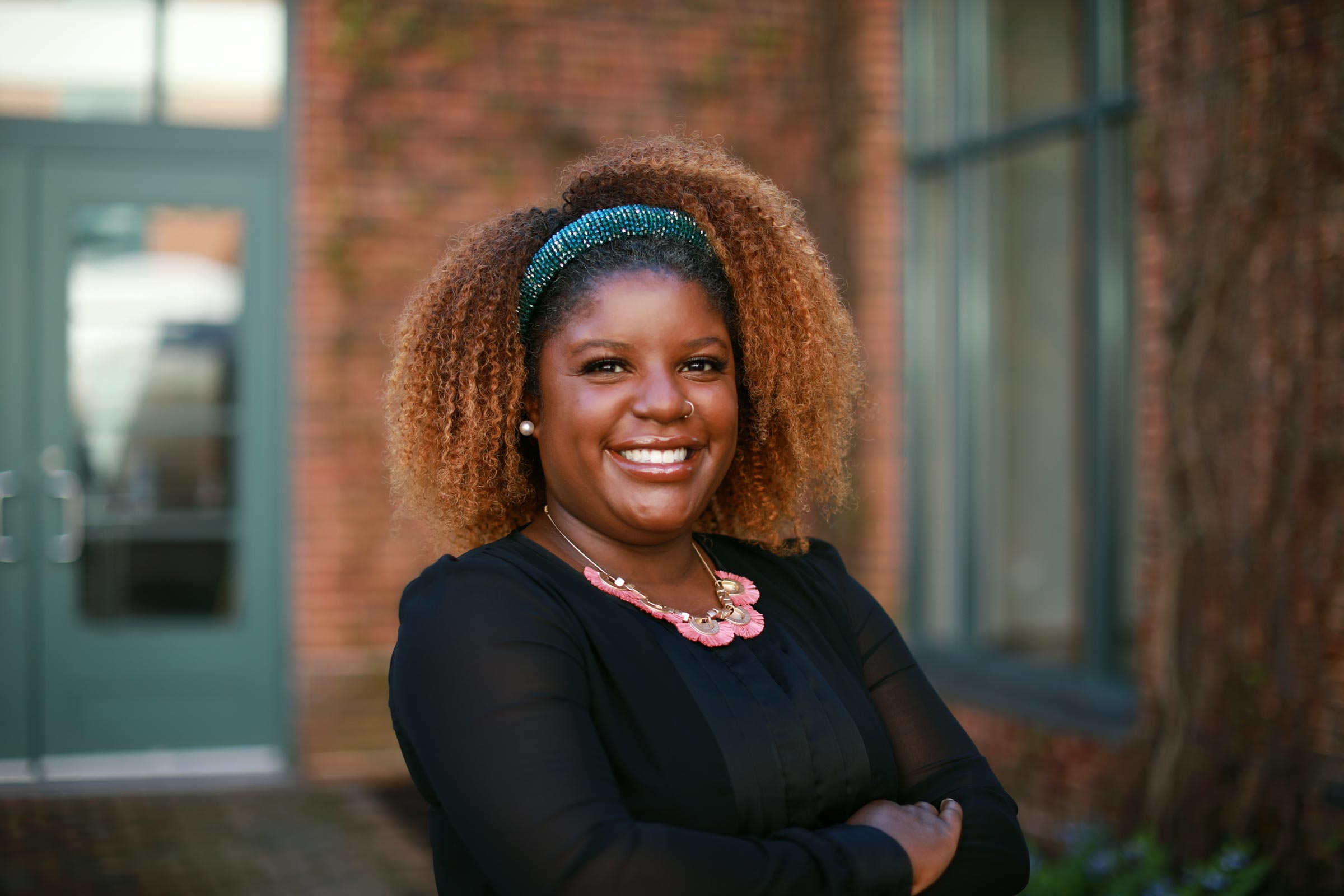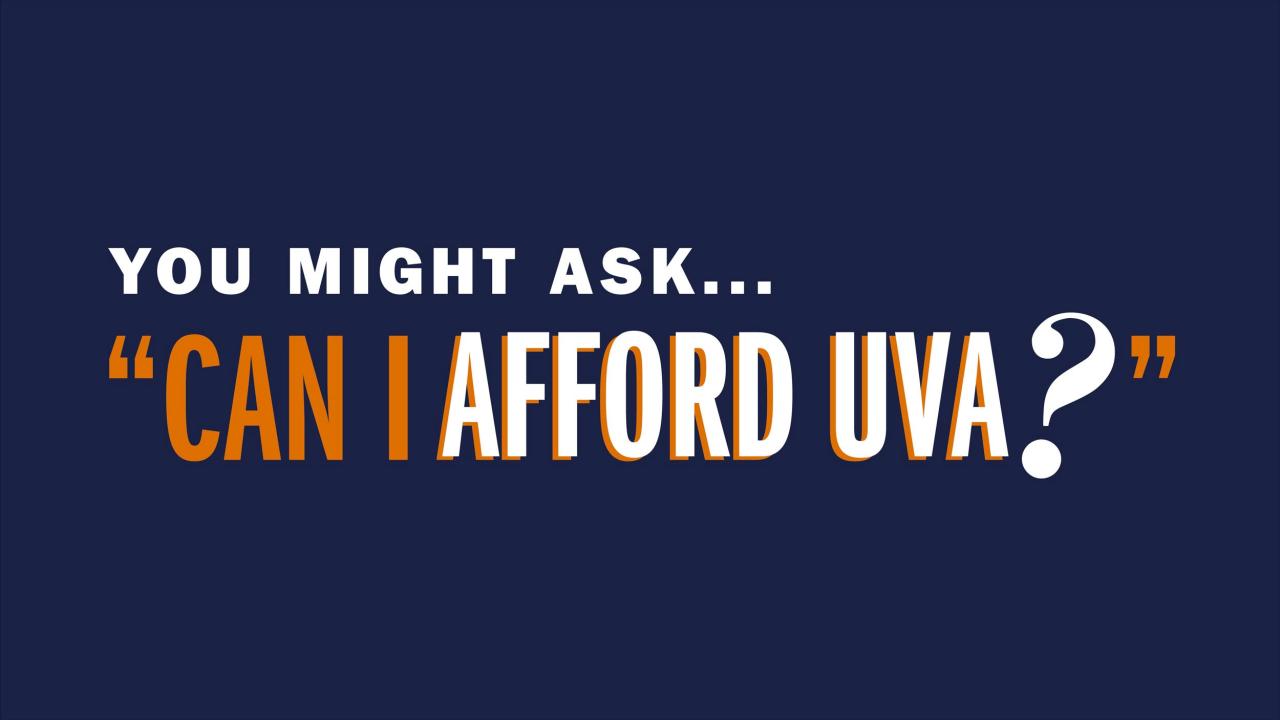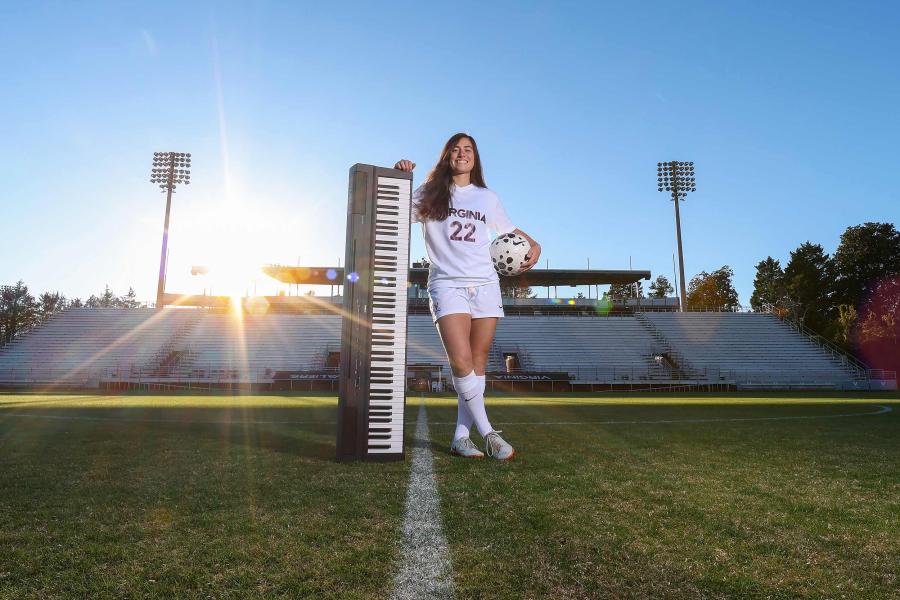Before starting her studies at the University of Virginia School of Law, Tiffany Mickel founded The Heiritage game company and developed a set of playing cards celebrating prominent African American women, from Zora Neale Hurston to Michelle Obama.
Continuing on her current trajectory, she might have to make room for one more card – her own.
Mickel, now a third-year student who is set to graduate May 22, became the Virginia Law Review’s first Black editor-in-chief last year. Leading one of the nation’s top law journals is an honor representing both her own academic achievement and the respect of the high-achieving peers who elected her to the role. It’s also like having a full-time job on top of being a student.
“Leading a flagship journal was demanding, but forming relationships with my colleagues on the review and seeing them and the journal perform so well was a reward in and of itself,” she said.
Mickel came to law school with plenty of experience in making her own path. A math and science whiz at her high school in Stafford County, she majored in materials science and engineering at the Massachusetts Institute of Technology, while minoring in African diaspora studies.
Though her engineering studies came naturally, the workings of the justice system captured her imagination early in her life, through TV shows like “Matlock” and “JAG” (her parents both served in the U.S. Army, so watching a show about Army lawyers was a perfect match).
After graduation, she worked for the Boeing Co. and as a management consultant for federal projects with Accenture for several years. But she eventually decided it was time to circle back to her notion of becoming a lawyer.
“After spending a few years as a consultant, I had to reevaluate my goals and dreams to make sure I didn’t get too far off track from my interest in studying the law,” she said. “I always imagined that a legal education, though challenging, would be incredibly dynamic. And I was right.
“Since being at UVA Law, I’ve become really interested in the corporate legal space, in which lawyers as problem-avoiders and problem-solvers generate solutions and counsel clients.”
Once she began her studies at UVA, she joined student organizations like the Black Law Students Association, which allowed her to work overseas on human rights projects, and was urged by her peers to try out for a journal, a highly competitive process.
“Having mentorship at UVA Law has been so pivotal,” she said. “Our student organizations are amazing; they’re student-run and afford us many wonderful opportunities to learn a great deal about what to expect from a legal education and how to get the most out of law school. I was fortunate to have an incredible mentor who I met through BLSA and who encouraged me to try out for Virginia Law Review.”
That same mentor also worked at Gibson, Dunn & Crutcher, where she plans to work after law school, in Washington, D.C., and sparked her interest in judicial clerkships. Mickel will clerk for Judge Carl E. Stewart on the U.S. Court of Appeals for the Fifth Circuit during the 2023 term.





